Whether you are a stay-at-home mom, retired teacher, or even a teen, learning how to use AI for SEO gravitate is not only fun but also crucial for your online business. In today’s digital landscape, AI for SEO is not just a trend but a transformative force that helps businesses improve their online visibility.
From enhancing keyword research to automating content creation, AI has revolutionized how we approach search engine optimization.
In this article, on how to use AI for SEO gravitate, I explore how AI can help you gravitate toward better SEO results by understanding its role, tools, and future potential.
Related: How to Find Unique Impressions on LinkedIn
Understanding AI in the SEO Landscape

The advent of AI has significantly reshaped the SEO landscape, bringing unparalleled efficiency and accuracy.
To appreciate its role, it’s essential to understand how search engines and optimization strategies have evolved over time.
The Evolution of Search Engines and AI
Search engines have come a long way from relying solely on keyword density and backlinks to determining rankings.
Today, AI-powered algorithms like Google’s RankBrain analyze user intent, context, and even voice queries to deliver highly relevant results.
AI enables search engines to process massive datasets, learn patterns, and provide a more personalized user experience.
As AI continues to advance, businesses must adapt their strategies to align with these intelligent systems.
AI’s Role in Modern SEO Strategies
AI is now at the heart of modern SEO strategies, enabling marketers to analyze user behavior, identify trends, and optimize content at scale.
For instance, AI tools can identify long-tail keywords that match user intent more accurately, helping create targeted content that ranks higher.
Additionally, AI simplifies tasks like A/B testing, user experience analysis, and even predicting which topics will trend next.
AI SEO Tools: Enhancing Efficiency and Accuracy
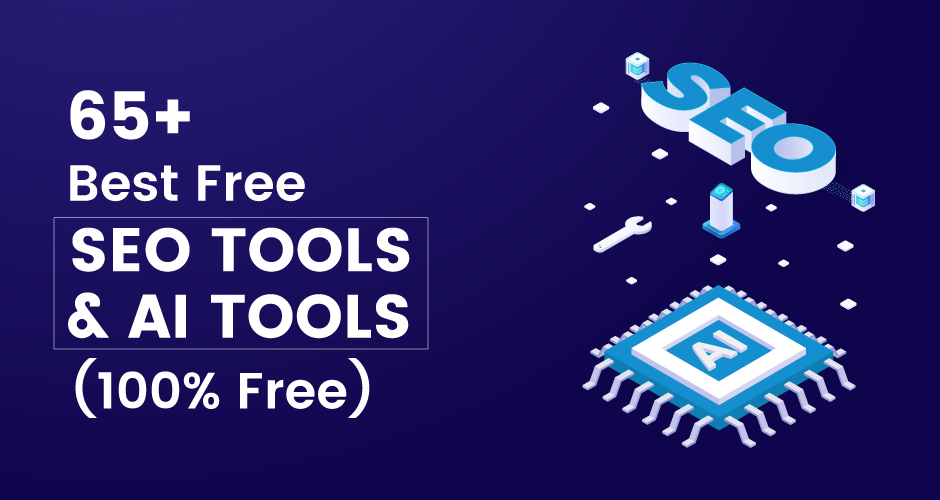
AI-driven tools are indispensable for any SEO strategy. They streamline processes, save time, and ensure data-driven decisions. Below, I explore their capabilities and how they enhance efficiency.
Top AI SEO Tools to Consider
Several AI-powered tools are leading the charge in the SEO world.
Tools like SEMrush and Ahrefs excel in keyword research and competitor analysis, while platforms like Surfer SEO and Jasper AI are ideal for optimizing and creating content.
Each tool offers unique features, making it essential to evaluate them based on your specific needs and goals.
How AI Tools Automate SEO Tasks
One of AI’s most significant benefits is automation. From generating meta descriptions to optimizing images and monitoring ranking fluctuations, AI reduces the manual workload.
For instance, AI can scan a website for technical issues such as broken links or slow-loading pages and suggest or even implement fixes in real-time.
This level of automation allows marketers to focus on strategy rather than repetitive tasks.
AI for SEO Data Analysis: Making Informed Decisions
Data is the cornerstone of effective SEO, and AI takes data analysis to the next level by providing actionable insights in real-time.
Real-Time Data Analysis with AI
AI tools analyze massive amounts of data almost instantly, offering insights into user behavior, site performance, and search trends.
These insights allow marketers to tweak strategies dynamically.
For example, if a particular piece of content sees a sudden drop in traffic, AI can identify whether the issue is related to seasonal trends, algorithm updates, or emerging competitors.
Predictive Analytics and Forecasting SEO Trends
Beyond analyzing past and present data, AI excels at predictive analytics. By recognizing patterns, it can forecast future trends and recommend proactive measures.
For example, AI can identify emerging topics in your niche, enabling you to create content before the competition does, thus positioning your site as a thought leader.
AI-Generated Content vs. Human-Written Content
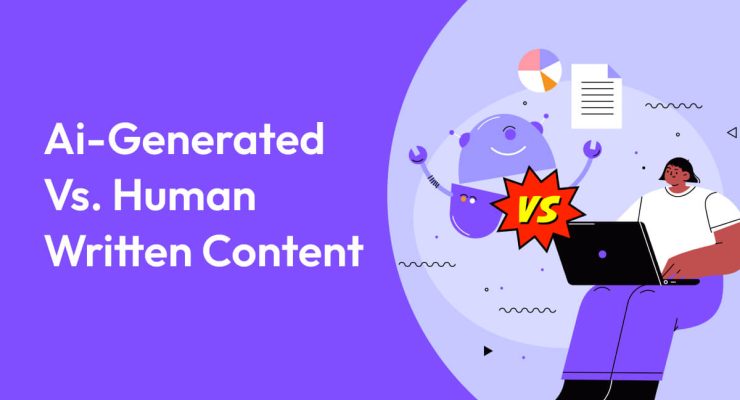
Content remains king in SEO, but the question arises: can AI-generated content match the quality of human-written pieces?
Can AI Write SEO-Optimized Content Faster?
AI tools like ChatGPT and Jasper can generate content in seconds, making them invaluable for time-sensitive campaigns.
These tools use natural language processing to create well-structured, keyword-rich articles.
However, while they excel in speed, ensuring the content aligns with your brand voice and user intent may still require human oversight.
The Quality of AI-Generated Content for SEO
AI-generated content is highly effective for creating foundational pieces, such as FAQs or product descriptions.
However, human creativity often outshines AI when it comes to storytelling, emotional resonance, and nuanced arguments.
The best approach is a hybrid one—leveraging AI for efficiency while relying on human expertise for depth and authenticity.
Implementing AI for On-Page SEO Optimization
AI isn’t just for data analysis and content creation—it can also revolutionize on-page optimization.
Step-by-Step Guide to Using AI for On-Page SEO
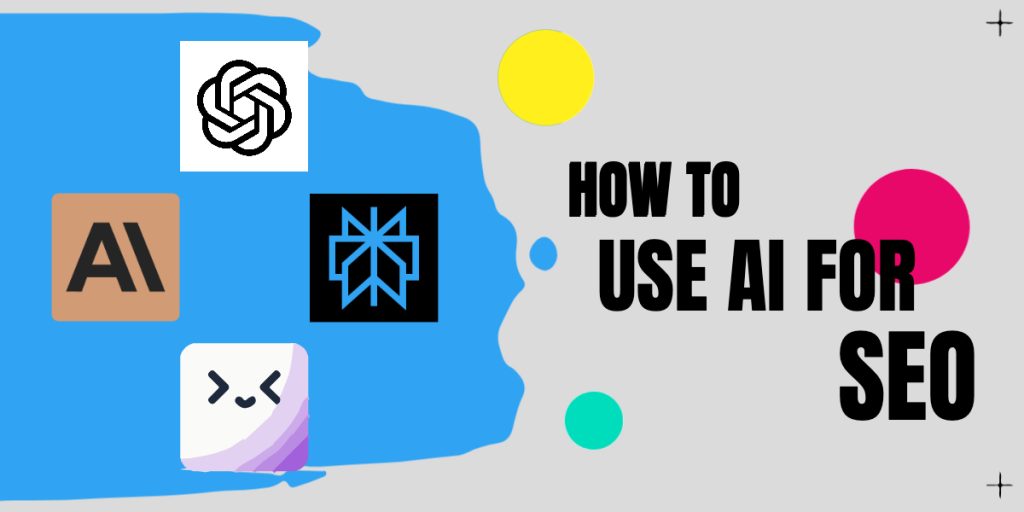
Artificial Intelligence (AI) has revolutionized the way we approach SEO, particularly on-page SEO, which focuses on optimizing individual pages of a website to rank higher in search engines.
AI can enhance your SEO efforts by providing automation, insights, and optimization techniques that are often more efficient than traditional methods.
Here are the steps to effectively use AI for on-page SEO.
Step 1: Conduct Comprehensive Keyword Research with AI Tools
Keyword research is the foundation of any SEO strategy. AI-powered tools can assist in identifying high-value keywords, long-tail keywords, and semantic search phrases that are aligned with user intent.
AI Tools for Keyword Research
Here are the top 10 AI tools for keyword research. Use this brief description to make an informed decision on the type of AI tool that will suit your writing:
1. SurferSEO – SurferSEO leverages AI to analyze top-ranking pages and provides detailed insights into keyword usage, search volume, competition, and content optimization. It also suggests keyword variations to improve on-page SEO.
2. Ahrefs – Ahrefs uses AI to identify keyword opportunities, assess competition, and provide data on search volume, difficulty, and potential traffic. Its AI-powered features help in discovering long-tail and related keywords.
3. SEMrush – SEMrush is an AI-driven keyword research tool that uncovers keyword variations, search intent, and competitor strategies. It provides insights into keyword trends and keyword gap analysis to stay competitive.
4. Moz Keyword Explorer – Moz’s AI-powered Keyword Explorer suggests relevant keywords and their search volume while analyzing keyword difficulty. It also helps in finding keywords with a high opportunity for ranking.
5. Ubersuggest – Ubersuggest uses AI to generate keyword ideas, search volume, and competition metrics. It offers detailed keyword analysis along with trend data, making it great for discovering new keyword opportunities.
6. Google Keyword Planner – Google’s AI-powered Keyword Planner helps you find keyword ideas based on search volume, trends, and competition. It’s particularly effective for identifying PPC keywords but can also be used for SEO research.
7. KeywordTool.io –This AI-powered tool generates keyword suggestions from multiple search engines (Google, YouTube, Bing, etc.) and offers insights into long-tail keywords. It also provides search volume and competition data for better targeting.
8. Frase – Frase uses AI to suggest keywords based on search intent and provides a detailed analysis of top-ranking content. It helps create content briefs and outlines, focusing on what users are searching for.
9. Answer The Public – Answer the Public utilizes AI to generate keyword ideas from search queries. It helps you understand the types of questions people are asking related to your keywords and provides long-tail keyword suggestions.
10. LongTailPro – LongTailPro’s AI features help identify profitable long-tail keywords and assess keyword competitiveness. It provides keyword suggestions based on search trends and user intent, ideal for niche targeting.
Actionable Steps:
- Use AI tools to find the keywords your target audience is searching for.
- Analyze search intent (informational, transactional, navigational) and user behavior.
- Select a mix of short-tail and long-tail keywords.
- Identify LSI (Latent Semantic Indexing) keywords related to your target keywords for semantic optimization.
Step 2: Optimize Content with AI-Powered Content Creation Tools
Once you have your target keywords, creating high-quality, engaging, and optimized content is crucial.
AI can help generate content ideas, enhance readability, and ensure keyword optimization.
AI Content Tools for Optimization:
- Jasper: An AI-powered writing assistant that helps create SEO-friendly content, suggesting keyword usage and enhancing content readability.
- Frase: This tool uses AI to create content outlines, identify key points for the target keyword, and suggests ways to improve existing content.
- Copy.ai: It can generate blog posts, landing page content, or product descriptions while ensuring the right balance of keyword optimization.
Actionable Steps:
- Use AI tools to generate high-quality, well-structured content based on your keyword research.
- Ensure that the content includes variations of your target keywords and LSI keywords naturally.
- Use AI to improve content readability and engagement, checking for grammar and style.
- Use AI to assess the length of content to meet best practices for ranking.
Step 3: Implement On-Page SEO Best Practices with AI Insights
AI tools can also guide you in optimizing on-page elements such as titles, headers, meta descriptions, and images.
These elements play a significant role in how search engines and users interact with your content.
AI Tools for On-Page SEO Optimization:
- SurferSEO: Surfer analyzes your page’s on-page elements like title tags, meta descriptions, headers, and content length in comparison with top-ranking pages.
- MarketMuse: This AI tool helps optimize content by suggesting header tags, title improvements, and keyword density.
- Yoast SEO (with AI): The plugin offers AI-driven suggestions to improve meta descriptions, title tags, readability, and keyword distribution on the page.
Actionable Steps:
- Optimize title tags and meta descriptions to ensure they include target keywords and are within the recommended character limits.
- Use AI to generate proper header tags (H1, H2, H3) that include relevant keywords and make content easy to navigate.
- Improve internal linking by using AI to suggest related pages or articles on your website.
- Check for mobile responsiveness using AI tools that provide insights on improving mobile usability.
Step 4: Enhance User Experience (UX) with AI-Powered Tools
Search engines, particularly Google, place a lot of emphasis on user experience.
AI can help optimize aspects of your website that contribute to a positive UX, such as page load speed, mobile optimization, and content accessibility.
AI Tools for UX Optimization:
- Google PageSpeed Insights: Uses AI to analyze your website’s speed and provides suggestions for improving page load times.
- Hotjar: This AI tool helps analyze user behavior through heatmaps and session recordings to identify areas where users are engaging most (or dropping off).
- Unbounce: AI-powered A/B testing can help determine the best layout, call-to-action buttons, and overall page design.
Actionable Steps:
- Use AI to optimize page speed by compressing images, minifying CSS/JS files, and leveraging browser caching.
- Ensure your website is mobile-optimized, as most searches are conducted on mobile devices.
- Use AI tools like Hotjar to track how users interact with your pages and refine the UX based on data.
- Optimize the website’s navigation, making it easy for users to find relevant content.
Step 5: Use AI for Content Gap Analysis and Competitor Analysis
AI tools can help identify content gaps and uncover opportunities for further optimization, ensuring your website is competitive in your niche.
AI Tools for Content Gap and Competitor Analysis:
- Clearscope: This tool uses AI to analyze top-performing content around your target keyword and suggests areas for improvement.
- SurferSEO: In addition to keyword research, SurferSEO provides competitor analysis and identifies content gaps on your site and competitor pages.
- SEMrush: AI tools in SEMrush can track your competitors’ strategies and uncover content opportunities based on their success.
Actionable Steps:
- Use AI to perform content gap analysis by identifying topics that your competitors are ranking for but you are not covering.
- Find opportunities for additional keyword integration or subtopics that could improve your rankings.
- Analyze competitors’ on-page SEO elements (titles, meta tags, etc.) and improve yours based on AI suggestions.
Step 6: Track and Monitor SEO Performance Using AI Analytics Tools
Finally, using AI to track and monitor your on-page SEO performance is essential for ensuring that your optimization efforts are yielding results.
AI Tools for SEO Performance Monitoring
Google Analytics: Integrates AI to provide data-driven insights on traffic sources, bounce rates, and user behavior.
RankMath: This AI tool offers insights into keyword rankings, on-page SEO, and traffic patterns, allowing you to adjust strategies accordingly.
Ahrefs: Provides AI-powered site audits and real-time data to track the SEO health of your website.
Actionable Steps:
- Monitor the effectiveness of your content and SEO changes by analyzing traffic, bounce rates, and conversions using Google Analytics.
- Adjust on-page SEO tactics based on performance, such as tweaking keywords or headers.
- Set up AI-driven alerts to monitor ranking changes and identify problems early.
How to Enhance Meta Tags and Content Relevance with AI
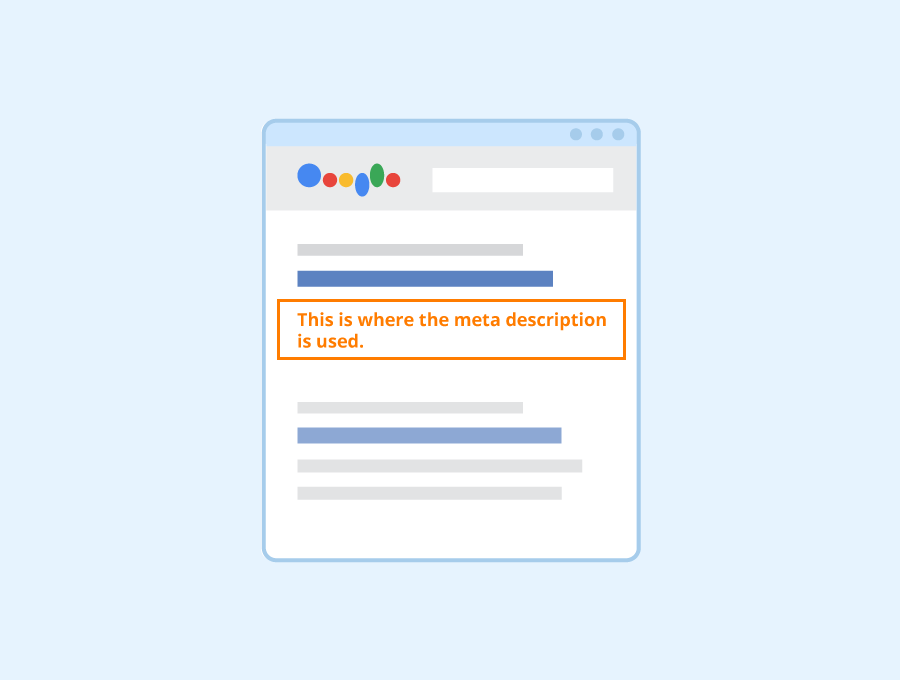
AI tools like Surfer SEO and Yoast SEO can analyze your content in real-time, providing suggestions for improving keyword placement, meta tags, and overall readability.
These enhancements ensure your pages are both user- and search-engine-friendly, boosting your rankings and engagement.
Also read: How to Get More Impressions on YouTube
Benefits of Using AI for SEO Gravitating Your Strategy
As search engine algorithms become increasingly complex, utilizing Artificial Intelligence (AI) for SEO has become essential for businesses looking to stay competitive.
AI’s ability to process vast amounts of data, identify patterns, and optimize SEO efforts in real-time offers marketers a powerful advantage.
By gravitating toward AI for SEO, you can automate time-consuming tasks, gain deeper insights into user behavior, and fine-tune strategies to improve rankings and user engagement.
Here are the key benefits of incorporating AI into your SEO approach:
1. Improved Keyword Research Efficiency
AI significantly streamlines the keyword research process by analyzing massive amounts of search data to identify high-value keywords and long-tail phrases.
AI-powered tools can predict trends, understand search intent, and deliver more accurate keyword recommendations tailored to your target audience.
With AI, keyword research becomes faster and more comprehensive, helping SEO professionals focus on the most effective keywords for their strategy.
This ensures that every piece of content is optimized with the right terms that have the highest potential for ranking well in search engines.
2. Enhanced Content Optimization
One of the key challenges in SEO is producing high-quality, optimized content that resonates with both search engines and users.
AI assists in content creation by analyzing top-ranking pages for a given keyword and suggesting improvements for your content.
Whether it’s recommending keyword density, identifying gaps in topics, or helping with content structure, AI ensures that your content is relevant and fully optimized for SEO.
This leads to better ranking positions and a higher likelihood of satisfying search intent, which is crucial for driving organic traffic.
3. Streamlined Competitor Analysis
Understanding how your competitors are performing in SEO is critical for staying ahead in the market.
AI-powered tools can conduct deep competitor analysis, examining their keyword strategies, backlink profiles, and content structures.
By processing this data, AI highlights areas where your competitors are excelling, as well as opportunities for you to capitalize on.
With AI-driven competitor insights, you can fine-tune your SEO strategies, ensuring that your website stands out and attracts more traffic than your competition.
4. Data-Driven Insights and Analytics
AI empowers SEO teams to move beyond basic tracking by providing real-time, actionable insights into their SEO performance.
AI tools can analyze traffic patterns, user engagement, and ranking fluctuations to pinpoint what’s working and where improvements are needed.
With these data-driven insights, SEO strategies can be continuously adjusted to align with changing algorithms, user behavior, and search trends.
This ability to monitor and adjust in real-time ensures that your SEO efforts remain relevant and effective, even in a rapidly changing digital landscape.
5. Automation of Repetitive SEO Tasks
SEO requires frequent and consistent effort, often involving repetitive tasks such as auditing content, tracking keyword rankings, and managing backlinks.
AI automates these time-consuming processes, freeing up SEO professionals to focus on more strategic elements of their campaigns.
For instance, AI can automatically flag underperforming pages, track keyword rankings, or suggest backlinks for outreach.
By automating these tasks, businesses can improve operational efficiency, reduce human error, and ensure that every aspect of their SEO strategy is continuously optimized without manual intervention.
The Future of SEO: AI’s Growing Influence
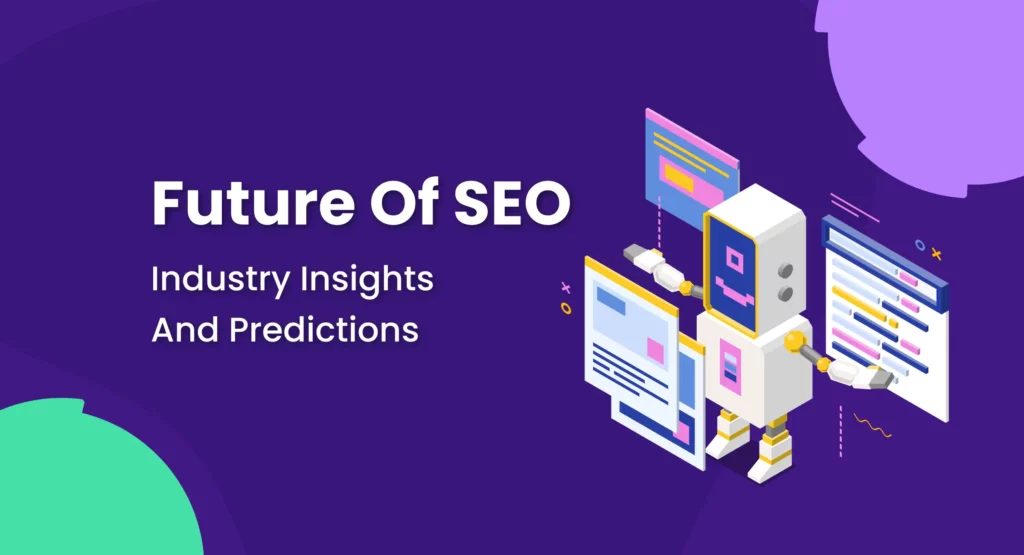
AI’s role in SEO is only set to expand as technology evolves.
Voice Search and Conversational AI in SEO: Voice search is becoming increasingly popular, and optimizing for it requires a different approach.
AI helps by analyzing conversational queries and structuring content to match natural language patterns, making your site more accessible to voice search users.
Ethical Considerations in AI-Driven SEO: As AI takes on more tasks, ethical concerns arise, such as the overuse of AI-generated content or the potential for manipulating search rankings.
Businesses must strike a balance, using AI responsibly to maintain trust and transparency with their audiences.
Choosing and Integrating the Right AI SEO Tools: Selecting the right AI tools and integrating them into your workflow is critical for success.
Evaluating AI SEO Tools for Your Business: Consider factors like cost, features, ease of use, and integration capabilities when choosing AI tools. Test multiple tools to determine which aligns best with your objectives.
Integrating AI Tools with Existing SEO Workflows: Ensure that AI complements rather than disrupts your current processes. For example, use AI tools to handle repetitive tasks while your team focuses on strategic planning and creative efforts.
Measuring the Impact of AI on SEO: Implementing AI is an investment, and measuring its impact is crucial for refining your strategy.
ROI of AI-Powered SEO Initiatives: Track metrics such as traffic growth, conversion rates, and time saved to evaluate the ROI of AI-powered tools and strategies.
Continuous Learning and Adaptation with AI in SEO: SEO is ever-evolving, and so is AI. Stay updated with the latest AI advancements and continuously adapt your strategies to remain competitive.
How to Use AI for SEO Gravitate FAQs
Q: Is SEO still relevant with AI?
A: Absolutely. AI enhances SEO strategies rather than replacing them, making them more effective and data-driven.
Q: Is there an AI tool for SEO?
A: Yes, tools like SEMrush, Ahrefs, and Jasper AI are widely used for various SEO tasks.
Q: Can we use AI content for SEO?
A: AI-generated content is suitable for foundational tasks but should be reviewed for quality and relevance.
Q: Can Google detect AI SEO?
A: Google can identify patterns in AI-generated content, so it’s essential to ensure originality and value in your content.
Q: How to use ChatGPT for SEO?
A: ChatGPT can assist in keyword research, content creation, and answering user queries effectively.
To Sum Up
AI has transformed SEO into a more efficient and insightful process. By learning how to use AI for SEO gravitate, leveraging AI tools for tasks like data analysis, creating content, and conducting on-page optimization, your business can achieve better results with less effort.
The key lies in balancing AI’s capabilities with human creativity and ethical practices to ensure sustainable success in the ever-changing digital landscape.
Using AI for on-page SEO can significantly enhance your website’s visibility, user experience, and overall search engine ranking.
From keyword research and content creation to UX optimization and performance monitoring, AI-powered tools streamline and optimize the entire process.
By adopting these AI tools and strategies, you can ensure your content is well-optimized for users and search engines, boosting your chances of ranking higher and driving organic traffic.











